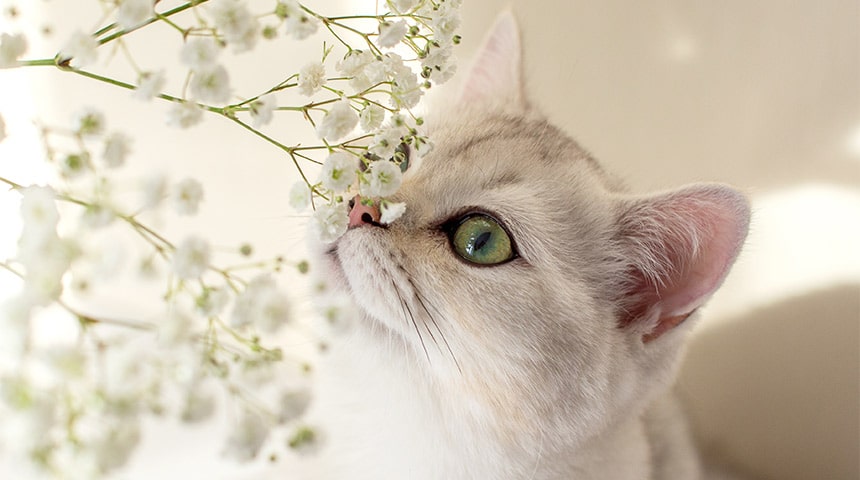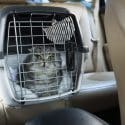Whether you receive a bouquet of flowers as a gift, you have plants at home, or are gardening, if you have a cat or a dog (or even both!), you need to know which plants are dangerous and which ones you can keep!
According to the ASPCA’s Animal Poison Control Center, here are the plants that are poisonous to your furry friends:
- Amaryllis
- Autumn crocus
- Castor plant
- Christmas cactus
- Chrysanthemum
- Cyclamen
- Daffodil
- English Ivy and Devil’s Ivy
- Holly
- Hydrangea
- Kalanchoe
- Lily: regardless of its variety (Asiatic Lily, Daylily, Peace Lily or Lily of the Valley), they are all dangerous
- Marijuana: especially the seeds, but the leaves as well
- Oleander
- Poinsettia
- Rhododendron and Philodendron
- Sago Palm
- Schefflera
- Tulip
- Yew Wood
What plants are safe to have?
- Aster
- Calamagrostis
- Carnation
- Caryopteris
- Daisy
- Grass Fountain
- Orchid
- Pansy
- Rose
- Russian Sage
- Sunflower
If you are unsure about a plant ingested by your pet, visit the Animal Poison Control Center website or call them at 1-888-426-4435.
Ingesting a poisonous plant can bring its share of problems, such as
- Kidney and liver damage
- Vomiting and diarrhea
- Gastrointestinal irritation
- Seizures
- Heart problems
- Weakness
- Hypothermia
The most extreme cases can lead to the death of the animal, which is why you should never underestimate the quantity ingested and go to the emergency quickly if you think you have seen your animal eat some.
You can go to the emergency department of our three following hospitals at any time:
Do not hesitate to research each of these plants to be able to recognize them visually.
Cindy Rosa-Boisvert, TSA
Hôpital Vétérinaire Ste-Thérèse





